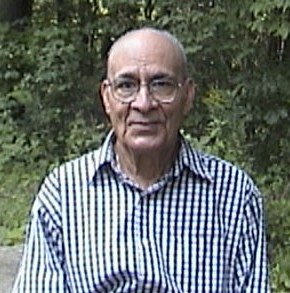
Pearey Tikku (now 79 years old) is a graduate engineer from India, where he worked for the cement industry. He arrived in the US with his wife in 1997 and lives with his children in New England and California. He is deeply religious and spends time reading scriptures and in meditation. Also likes to spend time writing poetry.
Editor's note: The author went to the United Kingdom on a two-year scholarship in 1955.
1955
Your offer from a distant land
Activates my mind of that times band
In that distant past, a young soul
Roughing Bay of Biscay, Channel, then my goal
At last Terra Firma, Tilbury Docks, your land
On an October eve I rode to Euston grand
Cora Hotel I was perched, left to fend
Alone, and so reserve, even sleep was shy to descend
A freezing room and I was not bright
To check the curtains and look around, draw them tight
Windows left open were my doom
And I resolved to return fastest soon
Chelmsford Essex on the Colchester line
Liverpool Street dispatched me fine
‘Cherry- Tree' my favorite haunt
Of Beer and wine, then a smoke full jaunt
Crompton Parkinson, my timeshare with others
Two good years went past, there were no fears
In Scottish Highlands, Devil's Elbow, lovely peaks